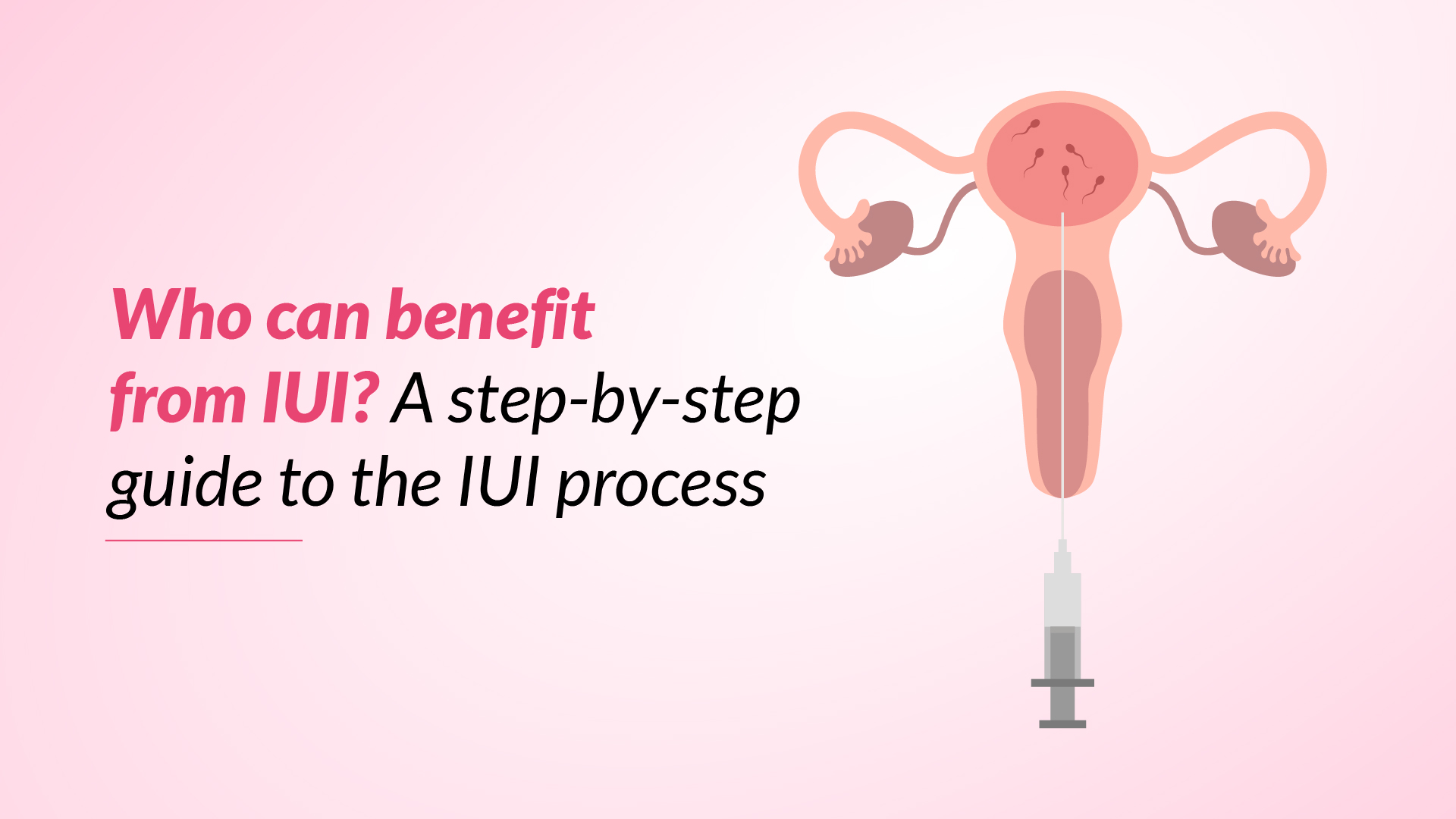Who Can Benefit from IUI? Step-by-Step Guide to the IUI Process
Reviewed By: Dr. Vijaya Madhuri, fertility specialist at Ferty9 Fertility Center, Banjara Hills Hyderabad
Infertility can be an emotionally & physically debilitating experience for couples trying to conceive. However, advancements in assisted reproductive technologies (ART) have provided hope for many individuals facing fertility challenges. One such treatment option is intrauterine insemination (IUI), a relatively simple and less invasive procedure that can increase the chances of conception.
What is IUI Treatment?
Intrauterine insemination (commonly called IUI) is a less complicated fertility treatment where a concentrated sample of healthy sperm is directly inserted into the uterine cavity around the time of ovulation. This procedure bypasses the cervix, allowing the sperm to cover a shorter distance to reach the egg, thereby increasing the chances of fertilisation.
Also read: The Benefits and Limitations of IUI Treatment
How is the IUI Procedure Different from Fertility Treatment like IVF?
While both IUI and in vitro fertilisation (IVF) are fertility treatments, they differ in several ways:
- Invasiveness: IVF is a more invasive procedure that involves retrieving eggs from the ovaries. It involves fertilising them with sperm in a laboratory & then transferring the resulting embryo(s) into the uterus. IUI, on the other hand, is a less invasive procedure that involves directly inserting prepared sperm into the uterus.
- Cost: IVF is costlier than IUI due to the additional steps involved, such as egg retrieval, embryo culture, and embryo transfer.
- Success Rates: The success rates for IVF are typically higher than those for IUI, especially for women with more complex fertility issues.
- Preparation: IVF requires more extensive preparation, including ovarian stimulation and monitoring, while IUI typically involves less monitoring and medication.
Who Can Benefit from IUI Fertility Treatment?
IUI can be an effective treatment modality for various fertility challenges. Here are some scenarios where IUI may be recommended:
Couples with Unexplained Infertility
In cases where the reason for infertility remains unclear despite extensive testing, IUI can be a viable option. By increasing the number of sperm reaching the female's egg, IUI can potentially overcome minor fertility problems that may be contributing to the difficulty in conceiving.
Women with Mild Endometriosis
Endometriosis, a gynaecological condition where the endometrial tissue grows outside the uterus, can sometimes interfere with fertility. For women with mild endometriosis, IUI can help improve the chances of conception by placing the sperm closer to the egg.
Women with Irregular Ovulation
Women who experience irregular or infrequent ovulation due to conditions like polycystic ovary syndrome (PCOS) may benefit from IUI combined with ovulation-inducing medications. This approach can increase the chances of conception by ensuring that the sperm is present during the optimal time for fertilisation.
Male Partners with Low Sperm Count or Reduced Sperm Motility
IUI can be an effective treatment approach for couples where the male partner has reduced sperm motility (movement) or low sperm count. By concentrating the healthiest sperm and placing them directly into the uterus, IUI can improve the chances of fertilisation.
Same-Sex Couples or Single Women
IUI is a common fertility treatment option for same-sex couples or single women seeking to conceive using donor sperm. The procedure allows for the direct placement of the donor sperm into the uterus, increasing the chances of successful conception.
Women Seeking a Less Invasive Alternative to IVF
For some women, IUI may be recommended as an initial and more affordable option before considering more complex treatments like IVF.
IUI Process and Timeline
The IUI process involves several steps, each designed to maximise the chances of successful conception. Here's a detailed look at the typical IUI timeline:
Initial Consultation
The first step in the IUI process is an initial consultation with a fertility specialist. During this session, the doctor will review your medical history, discuss your fertility goals, and perform a physical examination. They may also order diagnostic tests to evaluate your fertility and determine if IUI is an appropriate treatment option.
Pre-Treatment Evaluation
Before starting the IUI cycle, your fertility specialist may recommend additional tests to assess your reproductive health. These tests can include:
- Semen analysis for the male partner
- Ovarian reserve testing (e.g., anti-Mullerian hormone (AMH) levels, antral follicle count)
- Evaluation of the uterine cavity (e.g., hysterosalpingogram or saline infusion sonography)
- Screening for infectious diseases
Ovulation Monitoring
Timing is crucial for the success of IUI treatment. Your fertility specialist will closely monitor your ovulation cycle using one or more of the following methods:
- Basal body temperature tracking
- Ovulation predictor kits
- Transvaginal ultrasound
- Blood tests to measure hormone levels
This monitoring helps determine the optimal time for the IUI procedure, ensuring that the sperm is present when the egg is released.
Sperm Preparation
On the day of the IUI procedure, a semen sample from the male partner or a donor will be collected and processed in the laboratory. This process involves separating the healthiest and most motile sperm from the semen sample, creating a concentrated sperm sample for insemination.
IUI Procedure
The IUI procedure is relatively quick and straightforward. Here's what you can expect:
- Your doctor will insert a speculum (a medical tool) into your vagina to visualise the cervix.
- A thin, flexible catheter will be gently threaded through the cervix and into the uterus.
- The prepared sperm sample will be slowly injected through the catheter, depositing the sperm directly into the uterine cavity.
- You may experience mild cramping during the procedure, but it is generally well-tolerated.
Post-Procedure Care
After the IUI procedure, your doctor may advise you to:
- Lie down for a short period (usually 15-30 minutes) to allow the sperm to disperse throughout the uterus.
- Take progesterone supplements to support a potential pregnancy.
- Avoid strenuous activity or sexual intercourse for a day or two.
- Spotting is normal, but report any severe pain, heavy bleeding, or fever to your doctor.
- The two-week waiting period can be stressful. So, consider practising stress-relieving activities like yoga and meditation or exploring your creative hobbies.
Pregnancy Testing
The success of the IUI procedure can be determined approximately two weeks after the procedure by doing a blood test or using a home pregnancy test. Your fertility specialist will provide further prenatal care and monitoring guidance if the test is positive.
How Much Does IUI Treatment Cost?
The cost of IUI treatment can vary and depends on several factors, including your location, the fertility clinic, and any additional medications or procedures required. On average, the cost of a single IUI cycle can range from 8000 to 10,000 INR. However, it's important to note that these costs may not include additional expenses like fertility medications, diagnostic tests, or subsequent IUI cycles if the first attempt is unsuccessful.
Also read: Post-IUI Care: Essential Do's and Don'ts
Keys to a Successful IUI Cycle
While IUI is a relatively simple procedure, several factors can contribute to its success. Here are some keys to increasing the chances of a successful IUI cycle:
- Timing: Accurate ovulation monitoring and correct timing of the IUI procedure is crucial for success. Your fertility specialist will use various methods to pinpoint the optimal time for insemination.
- Sperm Quality: The quality of the sperm sample used for insemination plays a significant role in the success of IUI. Your fertility specialist may recommend lifestyle changes or additional treatments to improve sperm quality if needed.
- Age: As with natural conception, a woman's age can impact the success rates of IUI. Women under the age of 35 generally have higher success rates with IUI compared to older women.
- Lifestyle Behaviour: Adopting a healthy lifestyle, including a nutrient-rich diet, regular exercise, and managing stress levels, can positively impact fertility and the success of IUI treatment.
- Persistence: IUI may require multiple cycles to achieve a successful pregnancy. Your fertility specialist will recommend the appropriate number of cycles based on your specific situation and age.
Find Hope and Solutions for Female Infertility and Male Infertility — Explore Our Comprehensive Services
ICSI Treatment
PICSI Treatment
Fertility Preservation Service
Blastocyst Culture & Transfer Treatment
Conclusion
IUI treatment offers a valuable option for couples and individuals facing various fertility challenges. By understanding who can benefit from this procedure, the step-by-step process, and the keys to success, you can decide whether IUI is the right path for you. Remember, fertility journeys are unique, and seeking guidance from a qualified fertility specialist is essential for navigating the complexities of assisted reproductive technologies.
Visit Our Clinic:
Fertility Clinic in Hyderabad
Fertility Clinic in Visakhapatnam
Fertility Clinic in Vijayawada
Fertility Clinic in Karimnagar
Fertility Clinic in Warangal
Fertility Clinic in Rajahmundry
Fertility Clinic in Tirupati
Fertility Clinic in Kurnool

Write your message
FAQ's
Is IUI painful?
How many IUI cycles should one try before considering other options?
Are there any risks associated with IUI?
IUI is considered a relatively low-risk procedure. However, as with any medical procedure, there are some potential risks to be aware of, including:
- Mild cramping or spotting after the procedure
- Infection (rare)
- Multiple pregnancy (if fertility medications are used to stimulate ovulation)
- Ovarian Hyperstimulation Syndrome (OHSS)
Are there any specific tests that should be done before starting IUI?
Before starting IUI treatment, your fertility specialist may recommend several diagnostic tests to evaluate your fertility and identify any potential issues. These tests may include:
- Semen analysis for the male partner
- Ovarian reserve testing (e.g., AMH levels, antral follicle count)
- Evaluation of the uterine cavity (e.g., hysterosalpingogram or saline infusion sonography)
- Screening for infectious diseases
These tests help determine the most appropriate course of treatment and increase the chances of success with IUI.


